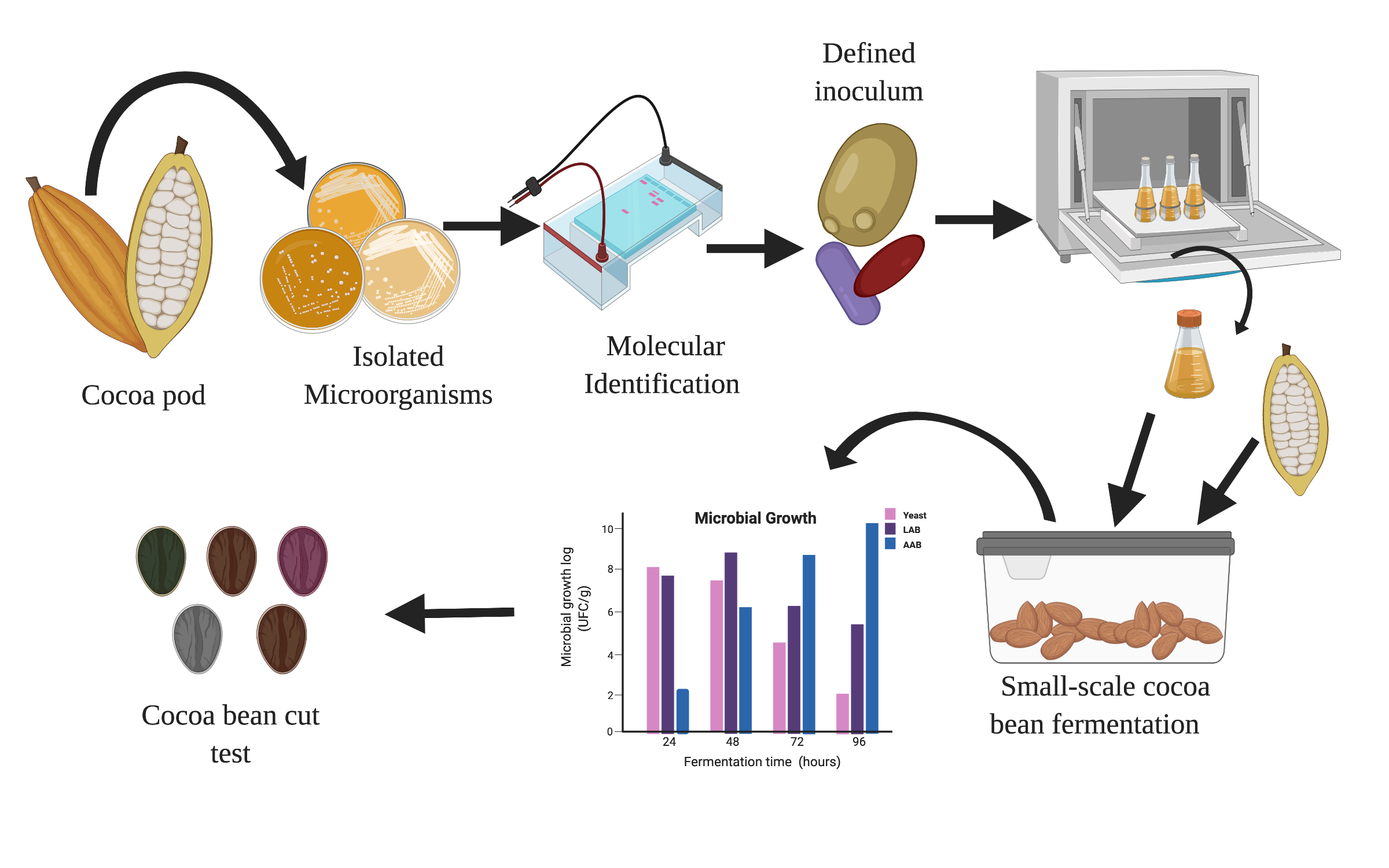 |
|
In cocoa fermentation exists a wide microbial diversity; the most important microorganisms are yeasts, lactic acid bacteria (LAB), and acetic acid bacteria (AAB). Such diversity can result that fermented cocoa quality is not always the same. The use of microbial consortia can steer the process, allowing the production of fermented cocoa beans with homogeneous quality and safety. For that reason, it was proposed to use indigenous microorganisms to formulate defined inoculums to conduct the small- fermentation of Mexican cocoa. A total of 54 strains were isolated from the spontaneous fermentation of cocoa. These included yeasts (Candida, Rhodotorula, Saccharomyces and Yarrowia), LAB (Lactobacillus and Lactococcus), and AAB (Acetobacter and Gluconobacter). The cocoa fermentations were inoculated with an inoculum composed of lipolytic Yarrowia, Lactococcus lactis, and Acetobacter aceti, only varying the form of inoculation (mixed or microbial succession) and were compared with spontaneous fermentation. It was observed that fermentation conducted by succession inoculation form showed similar behavior to the spontaneous process, obtaining well-fermented cocoa beans with homogeneous quality and safety.
Keywords: cocoa bean fermentation, yeast, lactic acid bacteria, acetic acid bacteria, microbial successions, small- scale fermentation, defined inoculum.
|
|
 |

